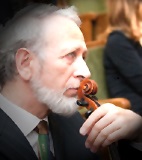Până voi avea timp să traduc şi să comentez documentul de mai jos, cei interesaţi îl puteţi citi în engleză.
Document developed by the General Conference Biblical Research Institute, March 2011
Document adopted by the Euro-Africa Division Biblical Research Committee, March 7, 2011
Document presented at the European Theology Teachers’ Convention, Cernica, RO, April 2011
Într-o versiune anterioară poate fi găsit în articolul lui Gordon Hyde din Ministry, iulie 1971 şi pe situl BRI .
Suggested Procedures for Hearings on Theological Questions Requested by Members of the Church
The Biblical Research Institute recommends a procedure whereby church members may present their views and concerns on doctrinal and theological matters for wider counsel, in harmony with the admonition of the Spirit of Prophecy in Testimonies, vol. 5, p. 293, and Counsels to Writers and Editors, pp. 43-51.
Objectives
These procedures are intended to assist in the accomplishment of the following objectives:
1. To demonstrate that the church will welcome the opportunity to examine theological issues.
2. To ensure individual church members the right, the channels, and the assurance of all reasonable speed in bringing his views and concerns to the church for consideration.
3. To set reasonable limits so that minor matters would not command the major attention of the church.
4. To demonstrate confidence in the wisdom which God bestows upon all levels of the church’s organization.
Procedures
1. Church members desiring to present their views and concerns to the church are invited to review them with thier church or district pastor. If the pastor or the members feel the need of wider counsel, the pastor will forward the member’s written presentation to the local conference or mission president. (In the case of persons employed by a denominational institution, the forwarding might well be done by the head of the institution.)
2. The conference or mission president may deal with the matter himself, provided that it is to the satisfaction of the church members, or he will arrange to submit the matter to an ad hoc committee of experienced Bible students (remembering the availability of trained theologians, who are committed to the mission and message of the church, at our educational institutions). The matter would be presented to the committee members in written form, and a decision to call them together as a committee to study the matter, or to hear the church member in person, would hinge upon the reaction received from the readers of the presentation.
3. Should the previous steps fail to satisfy the members presenting their views and concerns or the brethren taking the matter under advisement, they will request the conference president to report the matter to the union conference president for a comparable consideration at the union level. (In counsel with the union conference president, the local conference president might merge steps 2 and 3, carrying the matter to the union level at the outset.)
4. Should the previous steps fail to satisfy the members presenting their views and concerns and depending upon the involvement and seriousness of the matter presented, the union conference president in turn may direct the matter to the division Biblical Research Committee (where in existence) for comparable consideration.
5. Only after such steps in the process have been completed and the division Biblical Research Committee is unable to resolve the issue or feels that the matter concerns the world church and not just the local field will it forward the matter to the Biblical Research Institute at the General Conference. In such instances, the member’s presentation and the findings and recommendations from the several study groups will be forwarded to the director of the Biblical Research Institute of the General Conference.
6. The Biblical Research Institute will consider the matter and determine whether and in what manner they should get involved. They may seek the advice of the Biblical Research Institute Committee, or suggest some other steps. In any case, their decision is final and a report will be sent to all concerned.
7. As an evidence of good faith, the church members making the presentation and all those hearing them throughout the procedures are requested to refrain from publicizing discussions of the points at issue, whether as to substance or procedure, and whether orally or in writing. The committees and the church member are requested during this time to refrain from publishing or circulating or causing to be published or circulated any documents relating to the points at issue or to the request for a hearing.
8. Members who, without knowledge of the above procedures, have published their views and concerns shall have the right to present their views, as set forth in the foregoing, for the fair consideration of their situation and views.
9. Former church members who wish to present their views and concerns to the church are advised first to exercise their right to appeal for reinstatement as outlined in the Seventh-day Adventist Church Manual. Upon reinstatement they would follow the procedures outlined above. Exceptions to the provisions of this paragraph would be made at the discretion of the organization to which appeal is made and would be based on the merits of the case.
10. Upon the completion of any step in the procedures outlined above, the church members making the presentation shall have the right of appeal for a review of the case by the next level of the church’s organization. Before making such an appeal they are requested to consider prayerfully the counsel given in Counsels to Writers and Editors, pp. 43-51.



Comentarii recente în articole